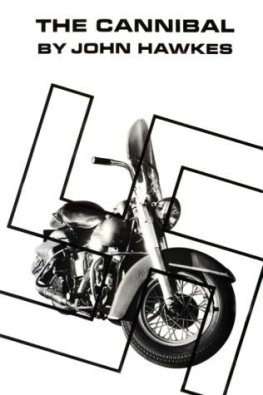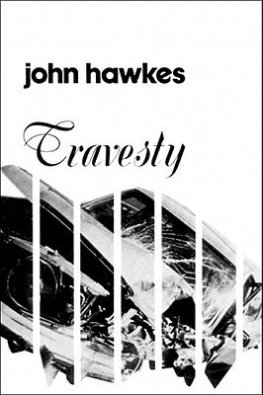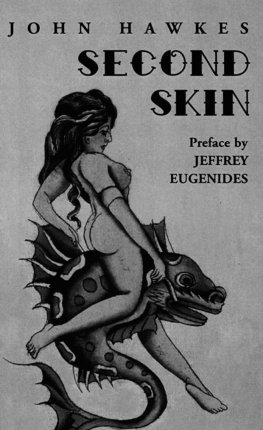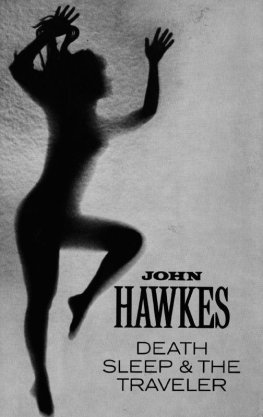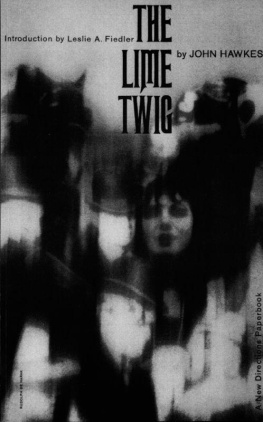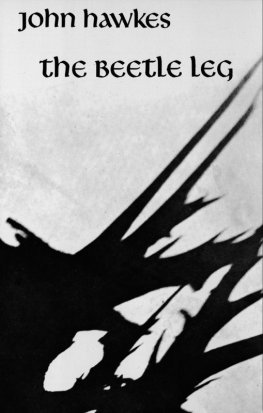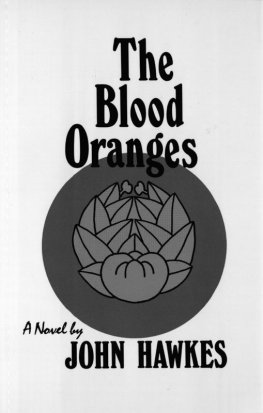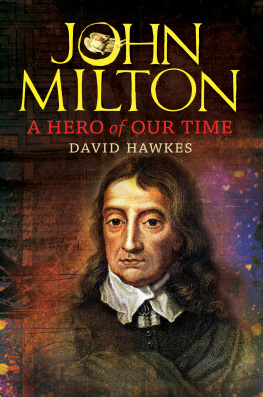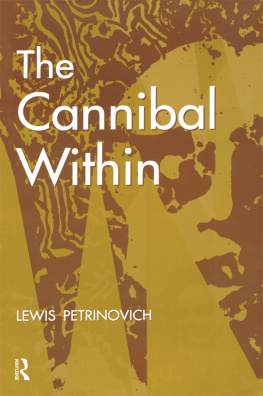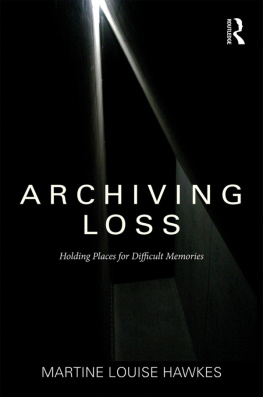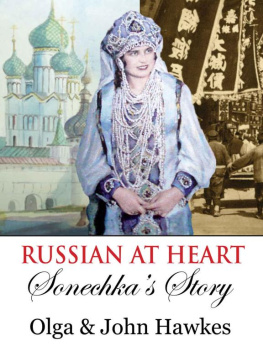Many introductions exist to persuade the reluctant reader that the classic text under consideration is deservedly a classic, with hidden meanings and beauties. But in the presence of a highly experimental novel, and of such a considerable new talent as that of John Hawkes, an introduction should perhaps attempt no more than to clear away some of the peripheral difficulties and obstacles of strangeness which might prevent an early understanding and enjoyment. No doubt the reader has a right to discover the hidden beauties for himself, during the first years of a novels life. But isnt it also the novelists own task, a few readers will certainly argueto clear away some of the peripheral difficulties and obstacles of strangeness? My own answer is that this question can be too costly. The merely secondary difficulties and obstacles involved in the first appearance of a Franz Kafka or a William Faulkner or a Djuna Barnes are not comparable to those involved in the first appearance of a conventional realist and perhaps it would be well if we could get at the restless and original Kafkas at least, if not at the Djuna Barneses, over a shorter period of ridicule, without having to wait so long. I use the names of Kafka and Faulkner and Djuna Barnes advisedly, these august names and coldly intense writers for I think the talent, intention, present accomplishment and ultimate promise of John Hawkes are suggested by some conjunction of these three disparate names.* I know that this is to say a great deal, and also to predict most rashly as to the future direction an original talent will take. John Hawkes is now, at the outset of his career and at the age of twenty-three, a rather more difficult writer than, Kafka or Faulkner, and fully as difficult a writer as Djuna Barnes. The Cannibal, written in 1948, is less surrealist than Charivari, a short novel written in 1947; and I suspect Hawkes will move still further toward realism. But his talent, whatever may happen to it, is already a major talent.
The peripheral difficulties, then, and obstacles of strangeness The plot is a simple one, but not to be simply apprehended. There is in the first place an interesting interlocked story of Germany during the first world war and of Germany in 1945a mythical year of the allied occupation, when a single American soldier on a motorcycle is left to supervise a third of the country. In 1914 Stella, later Madame Snow, night club singer and daughter of a general, meets an English traitor Cromwell, and marries the feeble Ernst. In 1945 Stella Snows boarding house in a ruined village harbors her sister Jutta, mistress of Zizendorf new political Leader and narrator of the story. Zizendorf successfully plots the death of the lone American overseer and the capture of his motorcycle, and the book ends with the rebirth of an independent Germany. For the tiny gutted Spitzen-on-the-Deinwith its feverish D.Ps., its diseased impotent adults and crippled children, with its foul choked canals, with its hunger, militarism, primitive memories and its unregenerate hatred of the conqueror is Germany itself in microcosm. (As a picture of the real rather than the actual Germany, and of the American occupant of that Germany, The Cannibal is as frankly distorted as Kafkas picture of the United States in Amerika; and also perhaps as true, thanks to that very distortion.) This interesting story is left very much in the dark, however; is obscured by brilliant detail, by a submersion in many different minds and their obsessions, by a total vision of horror and by a very distinct reluctance (the reluctance of a Conrad or a Faulkner) to tell a story directly. As in Faulkner and Conrad, we have the effect of a solitary flashlight playing back and forth over a dark and cluttered room; the images may be sharp ones, but a casual reference to some major happening may be clarified only fifty or a hundred pages later. The inattentive reader would be hard put to make even such a bare plot-summary as mine; though he might easily go far beyond it to see in Stella Snow, for instance, both Germany herself and the Teutonic female and fertility principles, the traditional earth-mother of German beer and metaphysics, survivor and protectress of the sterilefor she had survived and hunted now with the pack.
The peripheral difficulties are obvious enough for the reader who vaguely recognizes his own adult world in The Cannibal, as well as his own childhood fears. The story is radically out of focus, which was of course intended; yet there is no consistently distorting point-of-view. The narrator Zizendorf was perhaps intended to supply an even source of distorting light. But Zizendorf, a relative failure, poses more problems than he solves. Again, no character except Jutta in the single episode of the nunnery receives that consistent sympathy which most of all holds the average readers attention. John Hawkes clearly belongs, perhaps this to his credit, with the cold immoralists and pure creators who enter sympathetically into all their characters, the saved and the damned alike. Even the saved are absurd, when regarded with a sympathy so demonic: to understand everything is to ridicule everything. And it is also to recognize that even the most contaminated have their dreams of purity which shockingly resemble our own. A third difficulty and distraction is provided, as in Djuna Barnes, by the energy, tension and brilliance of phrasing often expended on the relatively unimportant: the appalling and prolonged description, for instance, of Madame Snow strangling a chicken, a description interrupted momentarily by the appearance of the Kaisers thin and depressed face at the window.
The final obstacle of strangeness suggested by the Kaisers face is that John Hawkes surrealism is an independent and not a derivative surrealism I use surrealism for want of a better word. There is some traditional symbolism in The Cannibal; even perhaps a little old-fashioned allegory. The dead frozen monkey who screams Dark is life, dark, dark is deathtail coiled about his neck, sitting upright on the bodies of the smaller beastsis an authentic surrealist monkey. But the ghosts who return each night to the single charred and abandoned allied tank belong to an older literature The basic convention of the novel is this: Germany and the world have shrunk to Spitzen-on-the-Dein, rather than the little village enlarged. The characters are passive somnambulistic victims of the divine or diabolic process (history), yet to a degree are aware of their historic position. Thus Ernie running after the carriage of Stella and Cromwell in a German town, stopping in an agony of impatience to relieve himself behind a bush, not merely parallels or suggests but for the moment is Gavrilo Princip, the assassin of Sarajevo; and Cromwell and Stella in the pursued carriage prophesy war and offer themselves as historic symbols: I will become, as you wish, your Archduchess for the people. One could even suggest the peculiarly German conception of a narrator possessed of divine or diabolic omniscience which the characters enter into or share in occasional moments of intuition. History is blind, inconsecutive, absurd yet a Stella Snow may foresee it: foresee the naked cowardice of the fencer, the future fluttering wings of the solitary British plane leaving its token pellet in the market place, her mothers body rolling around it like a stone strained forever, the stain becoming dry and black as onyx. Of the true solid ingredients of surrealism illogic, horror, macabre humorThe Cannibal has a full share. Terror, for instance, can create its own geography. Gerta almost stumbles over the dead body of the Merchant, on her return from the open latrine, the pea-green pit of stench, behind the

